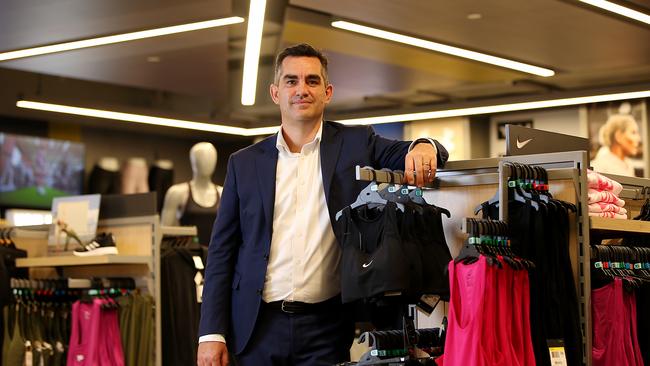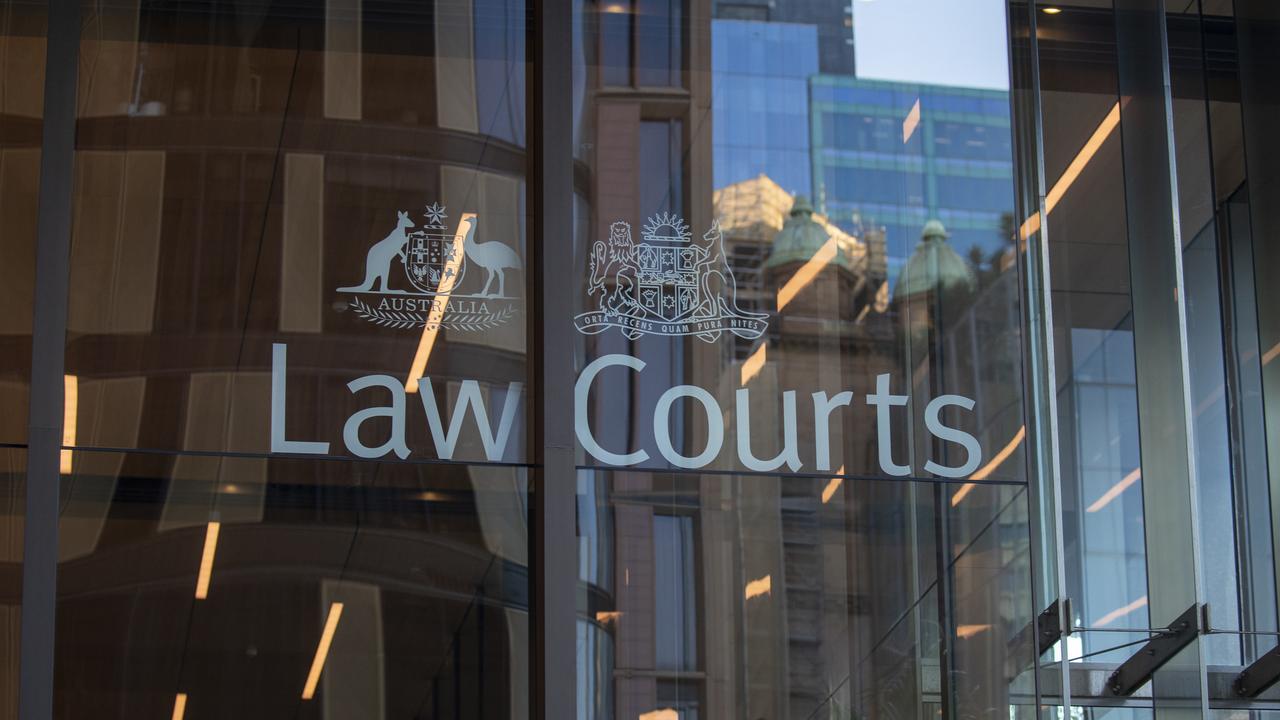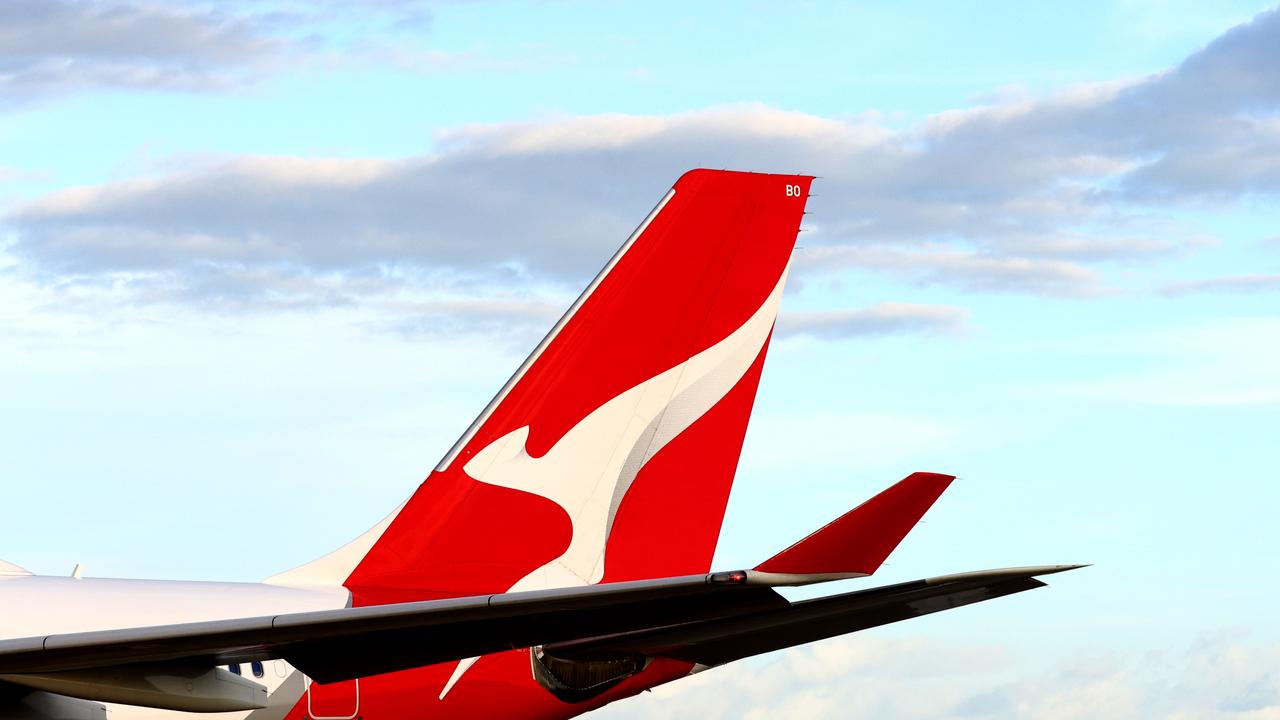Super Retail profit falls on higher costs
Investors edthe embattled retailer as profit fell more than expected, hit by inflationary pressures and rising costs. To make matters worse, theft has spiked at Rebel.

Business
Don't miss out on the headlines from Business. Followed categories will be added to My News.
Embattled Super Retail Group has suffered a near 10 per cent drop in interim net profit as ongoing inflationary pressures, higher business costs and a spike in theft at its Rebel stores chipped away at its profitability, triggering a 15 per cent share price slide.
The weaker profit was below market expectations, partly driven by uncharacteristic discounting in the auto parts sector that affected earnings at the company’s Supercheap Auto chain.
Margins remained flat but higher wages and rent dented earnings growth at its Supercheap Auto stores, while at its Rebel sports stores there was a spike in theft and margins were squeezed by consumers shifting to lower-margin sports equipment.
The company’s Boating Camping Fishing chain, BCF, recorded strong demand for camping gear, touring and water sports, but profit was weaker at its Macpac stores.
Super Retail, which last year was embroiled in a workplace harassment scandal involving chief executive Anthony Heraghty, posted a 4 per cent rise in revenue to $2.1bn as profit fell 9.5 per cent to $129.8m. The dividend was kept flat at 32c per share, payable on April 15.
The result disappointed analysts, with the stock diving more than 15 per cent to a low of $13.64. The stock is down 18 per cent over the last 12 months.
Mr Heraghty has consistently denied any wrongdoing, including allegations of an affair between himself and the company’s former head of HR, Jane Kelly.
He said Super Retail delivered solid first-half sales growth considering the challenging consumer conditions throughout the period.
“Our brands maintained pricing and promotional discipline amid pockets of elevated promotional activity in the market. The business successfully navigated the peak trade period through strategic initiatives across supply chain, stock availability, merchandising and ranging. These efforts drove accelerated growth in the second quarter at BCF and Rebel,” he said.
Mr Heraghty said theft was a particular problem at Rebel.
“I think there has been well-documented retail crime, and what we are seeing is retail crime levels increase in discretionary retail, and I think if we look at some of the major shopping centres there’s been actually very strong focus on retail crime and anti-social behavior.”
For the first half to December 31, same store sales at Supercheap Auto fell 0.1 per cent. They rose 2.6 per cent at Rebel, lifted 3.9 per cent at BCF and were up 0.1 per cent at Macpac. Earnings at Supercheap Auto fell to $97.7m from $107.3. Rebel’s profits also fell to $59.9m from $65.1m.
Meanwhile, holding back rising costs amid an inflationary environment will be key heading into the second half.
“Ongoing inflationary pressures on the cost of doing business have impacted profit before tax growth and margins in the period. While some of those pressures may be easing, we remain focused on actively managing our cost base in this environment,” Mr Heraghty said.
Like-for-like sales momentum has been positive in the first seven weeks of trading in the second half, reflecting pockets of improvement in New Zealand, and some timing benefits, particularly in the online channel.
Originally published as Super Retail profit falls on higher costs



